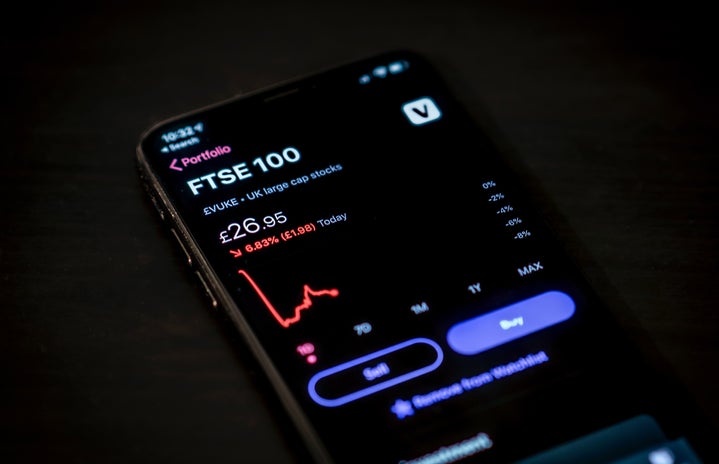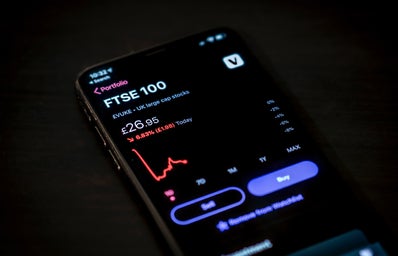What even is GameStop?
GameStop is an American company with over 5500 high-street stores across the United States, Canada, Australia, New Zealand and Europe that sell (you guessed it) games, consoles and other electronics. Founded in Texas in 1984 by Gary M. Kusin and James McCurry, it’s the world’s largest video game retailer. Still, it doesn’t sound particularly exciting, so why all the fuss?
What does Reddit have to do with it?
Well, it seems that GameStop was not doing particularly well. The coronavirus pandemic had hit the company hard and the shift to online sales was proving difficult, so much so that the company had plans to close 450 stores this year.
When companies like GameStop aren’t doing well, they sometimes become the subject of short selling – this is where people borrow shares in the company and sell them with a promise to buy them back later. If the person selling is certain that the company will lose value then they would make a profit when they bought the shares back at a fallen price. So, professional investors were betting that GameStop would lose a lot of value.
This is where Reddit comes in. The Reddit community “r/wallstreetbets” has been around since 2012 and is where participants can discuss stock and options trading. Early this year, huge numbers of participants from the subreddit decided to buy shares in GameStop and the demand drove the share price up significantly, resulting in all those professional investors losing their bets. This is what’s known as a “short squeeze”. Between the 26th and 28th of January, shares in GameStop soared by 408%, from $96.80 (£70.83) to $492.02 (£358.44).
What is Robinhood?
Robinhood is an investing app that launched in 2015. It’s particularly popular among the millennial generation as they can undertake a variety of investments without charge.
Many investors from Reddit used trading apps like Robinhood to purchase GameStop shares but on the 28th of January, the company announced that it was preventing users from buying stocks from several companies including GameStop, AMC and Nokia, stating “market volatility” as its reason. Understandably, many people were frustrated with Robinhood’s decision to prevent ordinary people from making some serious money. Furthermore, there was a general feeling that the company had made the decision to protect Wall Street investors. This led to a lawsuit being filed in the Southern District of New York the same day as the announcement was made.
The lawsuit accused Robinhood of “purposefully, willfully, and knowingly removing the stock ‘GME’ from its trading platform in the midst of an unprecedented stock rise” which “thereby deprived retail investors of the ability to invest in the open-market”.
The Robinhood app had already been in hot-water in June of last year when 20-year-old student Alexander E. Kearns committed suicide after seeing a $730,000 negative balance on his Robinhood account. The University of Nebraska student left a note for his parents asking, “How was a 20-year-old with no income able to get assigned almost a million dollars’ worth of leverage?”. Tragically, while Kearns’ account displayed a negative $730,165 cash balance, it has since been found that it may not have been the final figure but rather his temporary balance until other stocks settled in his account. The app has since faced backlash for allowing people with little to no knowledge of trading to invest large amounts of money.
What happens next?
On the 18th of February, a hearing was held before the US Congress to address the GameStop saga. The hearing lasted six hours and addressed the legal and financial consequences of the “short squeeze” on GameStop stock as well as the possible dangers of apps like Robinhood. Lawmakers stated that apps like Robinhood need better protections and to provide more support for customers.
The hearing also found that around 50% of Robinhood’s profit comes from “payment for order flow” which led some legislators to question whether this should be allowed. U.S Representative, Alexandria Ocasio-Cortez, went as far as to say that this profit should be passed to users of the app rather than pocketed by Robinhood.
It’s unlikely this will happen, but, hopefully, the GameStop saga has been a serious wake-up call for Wall Street, demonstrating that they do not hold a monopoly on the investment scene, and for apps like Robinhood who have now seen the devastating consequences of providing inadequate protection and customer support. For the rest of us, it has been a mildly entertaining (if not extremely confusing) story with a heartening David vs Goliath narrative.
Words By: Rosie Harkin-Adams
Edited By: Nina Bitkowska



